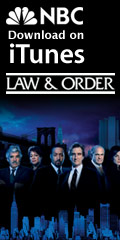Any filmmaker who tells you that he's giving you just the facts, it would be hard to understand how that filmmaker gets up in the morning to do what they do. We all do subjective work, as human beings, starting with what we eat for breakfast. As a filmmaking style, my approach is to put my subject through a kind of rigor. Arguments I've heard from the usual suspects, that all too often seem just like sound bites than real thoughts, I tend to run over the coals, and I don't let them just hang in the air. I hope that competing viewpoints in the film create a situation where the medium is the message. I've been changed immeasurably by experiences I had making the film, and you start out a very different filmmaker than you end up, if you're doing any good at all. If you end up where you started out, you probably failed on some very fundamental level.
So, where is the counterpoint? If Jarecki admits his own opinions in terms of politics tend to lean left of the political center, who on the right side of the spectrum is there to counter his own thoughts in the documentary? Senator John McCain? Any Republican can tell you that in spite of his heroic efforts in the armed forces during the Vietnam War, he is a RINO and a true representation of the Republican Party. If he is the only one then ‘Why We Fight’ is hardly an objective film.The public is becoming deeply disillusioned by a sense that the country has drifted very far from our hopes and ideals, and I think Americans are gradually coming to a deeper sense that something about our priorities is out of whack. We're very much stuck in the mud as a society right now, and it's not good mud. The possibility for change is crucial to all of us. What's happening is that the documentary is being looked to increasingly to fill a void left by a collapse of public trust in mainstream journalism. Journalists feel far too influenced by the link between their job security and what they report. The benefit of a documentary maker is that I don't have a job, so I can't lose my job. People have an appetite for truth, and that's more interesting than fiction, and in this point in human history, it may be far more necessary than fiction.
No, the only people who are ‘disillusioned’ with America are the people who lost the presidential election in 2000 and 2004 and the mid-term election in 2002. If ‘Michael Moore Hates America’ proved anything, the people who truly make America what it is, legal immigrants, embody the values and principles this country stands for and believe in them more then ever.
Every documentary maker walking the planet at one point or another gets asked the question about Michael Moore, and I think we all ask ourselves about Michael Moore, because he's a lighting rod in his own way. Michael Moore's voice is clearly one that, whatever you want to say about it, it has inspired young people to think that thinking about politics is not only hip, but sort of vital and urgent, and whatever one thinks of the content or the style of his films, he's to be commended for that.
However, sparking public debate is not Michael Moore’s point. He harps his anti-American agenda, shoves it down the throats of his audience, and accuses anyone who disagrees with him of being part of George W. Bush’s vast right-wing conspiracy. This is not something I believe he should be commended for in the least.
The only consistent answer to 'why we fight' is that what is true of all the wars: there is a terrible and tragic gap between what the public is told and what turns out later to be truly going on behind closed doors. We are never really fighting for the reason we were told at the beginning, and we find ourselves all too often deep in the quicksand of war, scratching our hands wondering how did we get here again? I wanted the audience to be able to leave the theatre and feel that they had heard a very complete discourse and not heard just one part of the story or had one agenda forced down their throats.
Really, Mr. Jarecki? What about the American Revolutionary War? Or World War I and II? Hell, how about the Vietnam War? Was there any question that we were battling the threat of Communism is Southeast Asia? No, so where does he get the idea that there is a gap between what the public is told and what the government really knows in regards to wars? Oh, Afghanistan and Iraq, of course. Silly me!


























































<< Home